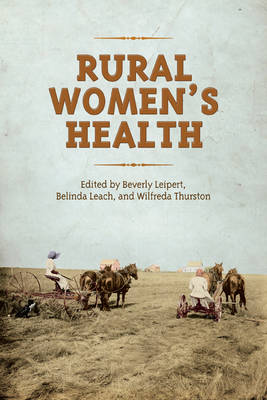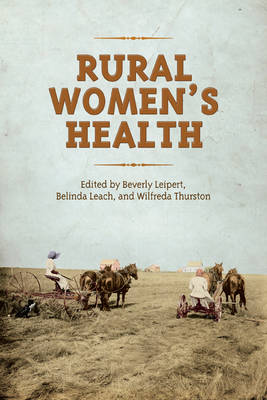
- Retrait gratuit dans votre magasin Club
- 7.000.000 titres dans notre catalogue
- Payer en toute sécurité
- Toujours un magasin près de chez vous
- Retrait gratuit dans votre magasin Club
- 7.000.000 titres dans notre catalogue
- Payer en toute sécurité
- Toujours un magasin près de chez vous
Description
The well-being of rural communities affects the well-being of those who reside in towns and cities because of rural-urban connections through food, drinking water, infectious disease, extreme environmental events, recreation, and for many, retirement residence. In rural areas themselves, women play a critical role in the health of their families and communities, yet women's health is often marginalized or ignored. There have been limited studies to date about rural women and health in Canada. Filling an important gap in scholarship, this collection identifies priority issues that must be addressed to ensure these women's well-being and offers innovative theoretical and methodological ideas for improvement.
Rural Women's Health integrates perspectives from rural practitioners, residents, and scholars in a variety of fields, including nursing, sociology, anthropology, and geography, to tackle issues relevant to diverse settings across the country. As such, it presents a national perspective on the nature of women's health while respecting internal and regional diversity, as well as viewpoints from international scholarship.
Spécifications
Parties prenantes
- Auteur(s) :
- Editeur:
Contenu
- Nombre de pages :
- 472
- Langue:
- Anglais
Caractéristiques
- EAN:
- 9781442645394
- Date de parution :
- 18-09-12
- Format:
- Livre relié
- Format numérique:
- Genaaid
- Dimensions :
- 160 mm x 231 mm
- Poids :
- 793 g







